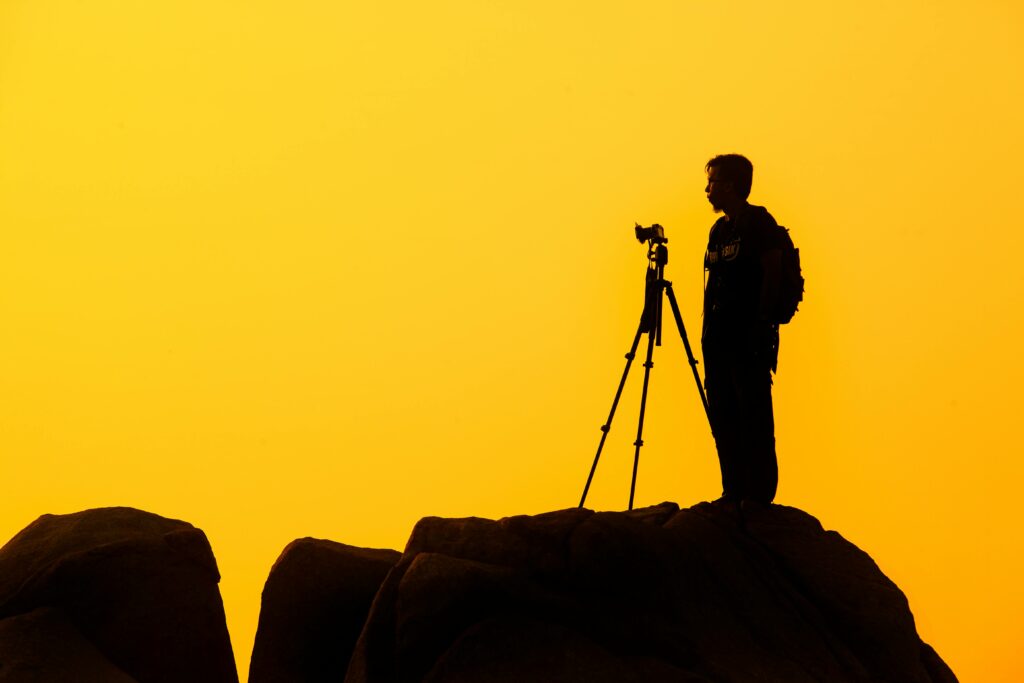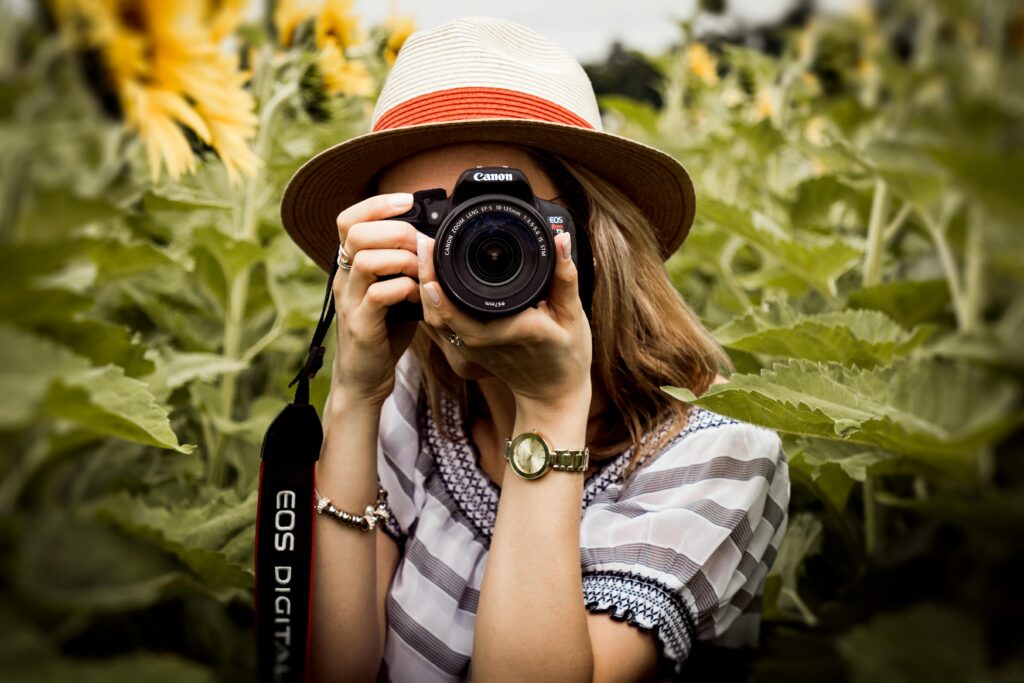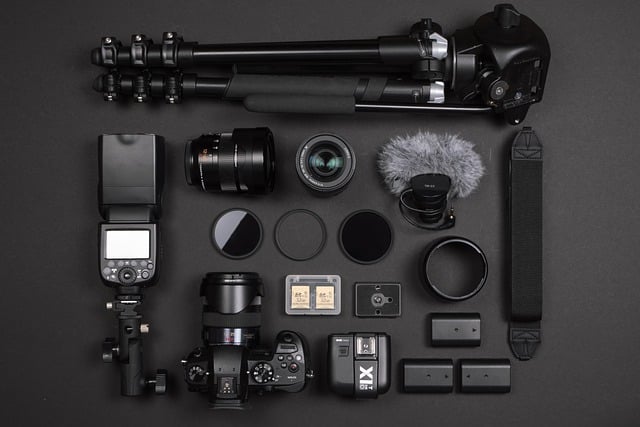Are you passionate about photography and considering turning it into a local business? Whether you’re looking to capture beautiful moments at events or showcase products for small businesses, photography can be a fulfilling and profitable career.
However, starting a photography business can feel a little overwhelming for beginners. The good news is that with the right strategy and tools, you can easily break into the market and build a successful business.
In this guide, we’ll walk you through the essential steps to starting a local photography business. By combining insights from experience, you’ll learn the best practices, avoid common challenges, and set yourself up for success after reading this article. Now Let’s dive into the article!

What is Photography Business
A photography business is a way of making money by taking pictures for people, events, or businesses. It means using your camera or phone to capture special moments like weddings, birthdays, or even products, and getting paid for your work.
It’s more than just snapping photos, you’re helping people keep memories and promote their brands through quality pictures.
Why Consider Photography Business
Here are a few reasons you should consider photography business in Nigeria:
1. High Demand Across Events and Industries
From weddings and birthdays to business branding and social media content, there’s always someone who needs quality photos. Photography is one business that stays relevant all year round in Nigeria.
2. You Can Start Small and Grow Over Time
You don’t need millions to start. With a smartphone and basic editing tools, you can begin offering services and improve your gear as you earn.
3. It Offers Creative Freedom
Photography allows you to show your talent and express yourself. You’re not stuck in a routine every shoot is different, fun, and gives room for creativity, especially if you love storytelling through pictures.
4. Flexible Schedule and Side Hustle Potential
You can run a photography business part-time while schooling, working, or running another hustle. It gives you control over your time and bookings.
5. Easy to Build a Strong Personal Brand
In today’s digital world, your Instagram or Facebook page can become your portfolio. With consistency and good work, people will start recommending and booking you, even without owning a physical studio.
Related Post:
- Local Business Ideas.
- How to run a Successful Local Grocery Store.
- How to Start a Plant Nursery Business.
- Discover How to Start an Interior Design Business in Nigeria.
Steps on How to Start up a Local Photography Business
Here are the different steps on how to Start a photography business in Nigeria:
Step 1. Understand the Photography Industry
Before you jump into taking pictures for money, it’s important to understand how the photography world works. Photography is used everywhere, from events like weddings and naming ceremonies to product marketing, social media, and even real estate.
In Nigeria, the demand for photography is high, especially in urban areas like Lagos, Abuja, Port Harcourt, and even growing towns. Knowing this helps you see where the opportunities lie and how you can stand out.
Step 2. Develop Your Photography Skills and Knowledge
Before launching your local Photography business, it’s crucial to have a solid grasp of photography skills. Whether you see it as a hobby or have some experience, continuous learning and practice are important.
How to Improve Your Skills:
A. Online Learning: There are lots of free and paid courses available online. Websites like YouTube, Skillshare, and Udemy offer valuable tutorials that cover everything from basic camera settings to advanced editing techniques.
B. Books and Guides: Photography books can provide a more structured approach to learning. Topics like lighting, composition, and storytelling will help you develop a well-rounded understanding.
C. Hands-On Practice: Nothing beats real-world practice. Start by shooting different types of subjects in various settings, portraits, landscapes, or even product shots. Practice in different lighting conditions, and experiment with different angles and compositions.
D. Feedback and Mentorship: Ask for feedback from other photographers, whether through online communities or local groups. Consider finding a mentor to guide you, as they can offer invaluable insights and tips.
Why is skill development important? Your photography skills directly impact the quality of your work. The more skilled you are, the better your photos will be—and in turn, the more clients you’ll attract. So, take the time to refine your skills!

Step 3. Choose Your Photography Niche
As a beginner, one of the most important decisions you’ll make is selecting your niche. Specializing in a specific type of photography will not only help you focus your efforts but also make it easier to market your business grow.
How to Choose Your Niche:
A. Reflect on Your Interests: Do you love capturing intimate moments at weddings? Are you drawn to shooting stunning products for e-commerce? Or maybe you’re passionate about portraits or landscapes? Pick a niche that excites you, your enthusiasm will come through in your work and attract clients who share your vision and have the same view.
B. Assess Market Demand: Look around your local area and see where the demand for photography lies. Niches like event photography (weddings, parties), portrait photography, and corporate photography are popular in many areas. Consider what services people are likely to need in your community and make improvements towards it.
C. Research Your Competition: Before committing, check out what other photographers in your area are offering. Are there any gaps in the market? For example, if there’s a lot of competition in portrait photography but little in product photography for small businesses, this might be a niche worth exploring.
Why is niche selection important? A niche helps you focus your marketing efforts and build a brand. It’s easier to focus on yourself as an expert in one area than try to be everything to everyone. A clear niche helps your clients know exactly what you offer and why they should hire you.
Types of Photography Niche
You don’t have to do everything. Choosing a niche helps you focus and become an expert in one area. Here are some popular photography niches in Nigeria:
- Wedding Photography: Always in demand. Big events need beautiful memories.
- Event Photography: Birthdays, anniversaries, church programs, etc.
- Portrait Photography: Studio or outdoor photoshoots.
- Fashion Photography: For models, designers, or clothing brands.
- Product Photography: For online sellers and businesses.
- Real Estate Photography: Capturing homes for agents and property developers.
- Drone/Aerial Photography: Great for events and real estate, if you have the tools.
Pick one (or two) based on what you enjoy and the kind of clients you want to work with.

Step 4. Invest in the Right Equipment for Your Budget
As a beginner who is just starting, you don’t need to spend a fortune on high-end gear. However, the right equipment will make a significant difference in the quality of your work.
Starting with the Essentials:
A. Camera: A good DSLR or mirrorless camera is the backbone of your photography business. a cheaper but quality model is affordable and still provides excellent image quality. Brands like Canon, Nikon, and Sony offer great options for beginners.
B. Lenses: Invest in versatile lenses that suit your niche. For example, a 50mm lens is great for portraits, while a 24-70mm lens is more versatile for general shooting.
C. Lighting: Good lighting is key to professional-looking photos. You don’t need expensive studio lighting when starting; a simple ring light or softboxes can help you get started.
D. Editing Software: Picture processing and editing is a huge part of photography. Adobe Lightroom and Photoshop are popular tools, but there are also free alternatives like GIMP or Snapseed for mobile editing.
Why is investing in the right equipment so important? Your camera is your tool for capturing moments. High-quality gear allows you to produce sharp, clear, and vibrant images that clients will love. Plus, it helps you work efficiently and handle a variety of shooting situations.

Step 5. Register Your Photography Business
Giving your business an official name makes you look serious and trustworthy.
Steps to Register:
- Think of a unique name and check if it’s available on the CAC portal.
- Register your business via CAC Nigeria.
- Create a logo and brand colors.
- Open a business bank account with your business name.
- This adds credibility and makes clients more confident to pay you.
Step 6. Set Competitive Prices and Offer Packages
Pricing can be a challenge for beginners, but it’s essential to set rates that go hand in hand with your skills, equipment, and market demand. You want to price your services competitively without undervaluing your work.
How to Set Your Prices:
A. Start with Research: Research what other photographers in your area charge for similar services. Look at their portfolio, experience level, and package offerings. Pricing too low might undermine your professionalism, while pricing too high can drive potential clients away.
B. Offer Packages: Offering a range of service packages to accommodate different budgets. For example, you could offer a basic portrait package or an all-inclusive wedding photography package. This gives clients options and helps them choose what suits their needs.
C. Build Value with Your Offerings: In addition to the shoot itself, think about what value you can add to your packages. Offering prints, online galleries, or photo albums can differentiate you from the competition.
Why is pricing important? Your pricing should reflect the quality of your work and the effort you put into each project. It’s important to find a balance that is competitive enough to attract clients but high enough to sustain your business and make a profit.

Step 7. Market Your Photography Business Locally
No matter how great your photos are, your business won’t succeed unless people know about it. Effective marketing is essential to growing your local photography business.
How to Market Your Photography Business:
A. Social Media: Platforms like Instagram, Facebook, and TikTok are perfect for photographers. Share your work regularly, engage with followers, and use relevant hashtags. Stockframes emphasizes that showcasing your best photos is a great way to build a following and attract new clients.
B. Word-of-Mouth and Referrals: Personal recommendations are powerful. Provide excellent service and encourage satisfied clients to refer you to others. Offering referral discounts can be a great incentive too.
C. Create a Portfolio: Having a professional online portfolio helps you present your best work in one place. A website with a clean, easy-to-navigate layout is ideal for potential clients to learn more about your services and book a session with you.
Why is marketing so critical? Without marketing, you won’t get the visibility you need to attract clients. Effective marketing builds awareness and trust, making it easier for clients to find and hire you.

Step 8. Setting a Studio for Photography
When starting, you have the option of how to structure your studio. Here is how it is done:
A. More Investment: A studio offers a controlled environment and can give your business a professional image. However, it requires more financial commitment, including rent, utilities, and equipment.
B. Consistency: With a studio, you can offer consistent, high-quality shoots, especially for clients who need a specific background or lighting setup.
This option is best for beginners? You can always open a studio later as your business grows and you gain more clients.
Step 9. Manage Bookings, Invoices, and Clients Professionally
Clients will respect you more if you handle business properly.
Tools You Can Use:
- Invoice.ng: Nigerian tool to send invoices and track payments.
- Trello or Google Calendar: For planning your shoots.
- WhatsApp Business: Organize client chats, prices, and auto-replies.
Always confirm bookings with a deposit, and set clear terms (like photo delivery timelines).
Step 10. Keep Learning & Stay Inspired
Photography evolves fast, and new trends, editing styles, and new gear come out regularly.
How to Stay Updated:
- Follow pro photographers on social media.
- Join Facebook groups like “Nigerian Photographers Community.”
- Attend workshops or exhibitions event to create awareness.
Challenge yourself with new styles (night shoots, portraits, etc.).
Common Mistakes to Avoid When Starting a Photography Business
As a beginner, it’s easy to make some avoidable mistakes that could slow your progress or damage your reputation. Below are some typical beginner errors, along with simple tips to help you avoid them.
1. Undervaluing Your Service
Many beginners charge too little out of fear they won’t get clients. But this sends the wrong message. Instead, price your work fairly based on your skill level, expenses, and market rates.
2. Ignoring Backup Plans
Not having a spare memory card, battery, or camera can lead to disaster, especially at events. Always have backups, even if they’re small.
3. Overediting Your Photos
While editing enhances photos, too much editing can make your work look fake or unprofessional. Keep it clean and natural.
4. Lack of Client Communication
Always confirm dates, times, and expectations. Misunderstandings can lead to unhappy clients.
5. Neglecting Contracts and Deposits
Even with friends or family, get a written agreement. It protects both parties and helps avoid disputes.
6. Inconsistent Branding or Online Presence
Using five different names across your pages confuses people. Stick to one name, and one logo, and keep your social media pages active and updated.

Local Photography Business Frequently Ask Questions and Answers
1. Do I need to have a studio to start a photography business? Nope! You don’t need a studio when you’re just starting. Many photographers begin their business by shooting on location or even from home. You can work with clients at their events, in their homes, or at local spots. As your business grows and you get more clients, you might choose to open a studio, but it’s not a requirement in the beginning. Flexibility is key when you’re just starting!
2. How do I create a portfolio as a beginner? Creating a portfolio is easier than you think! Start by showcasing your best work, even if you’re just getting started. You can offer free or discounted sessions to friends, family, or small businesses to build up your portfolio. Focus on the types of photography you want to specialize in and make sure to include a variety of shots such as close-ups, wide shots, and different lighting positions. Once you have a solid portfolio, you can create a simple website or use social media platforms to display your work.
3. How can I get my first clients as a beginner photographer? Getting your first clients can feel challenging, but don’t worry! Start by offering discounted sessions to friends, family, and people in your community. Word-of-mouth is also important to make sure your clients are happy with your work, and they’ll be more likely to recommend you to others. You can also reach out to local businesses or events and offer your services. Building an online presence on social media or a portfolio website will also help attract clients looking for a photographer.
4. How Much Does It Cost to Start a Photography Business Locally?
Starting your photography hustle doesn’t mean you need to break the bank. Here’s a rough estimate for beginner-friendly gear and tools in Nigeria:
Item Estimated Cost (₦)
Used DSLR Camera (Canon 600D) 350,000 – 400,000
50mm Lens (Nifty Fifty) 60,000 – 100,000
Tripod 40,000 – 50,000
Memory Cards & Batteries 10,000 – 20,000
Light/Reflector 10,000 – 25,000
Editing Software (Lightroom Mobile) Free / Subscription
Business Registration 20,000 – 30,000
Total Minimum Budget: ₦300,000 – ₦600,000
You can start smaller by borrowing or renting gear. The goal is to start with what you have and upgrade over time.
Conclusion
Starting a local photography business as a beginner can be both exciting and challenging. By developing your skills, choosing the right niche, investing in affordable and effective equipment, and marketing your services, you’re well on your way to success. Remember, the key is to start small, build your portfolio, and offer great customer service.
As you grow, you can raise your rates, expand your services, and even invest in a studio if you choose to. So now that you are equipped, Are you ready to start your photography business? Don’t wait, grab your camera, practice your shots, and start building your brand.
The world is waiting to see your talent!
If you found this guide helpful, please consider supporting us by subscribing to our newsletter, liking it, and sharing it with others.


